|
Annalise Nordgren has been a research assistant with LUFA since fall of 2019. She wrote the following profile of her experiences in research and with DePaul Urban Gardeners for the ENV Department newsletter. 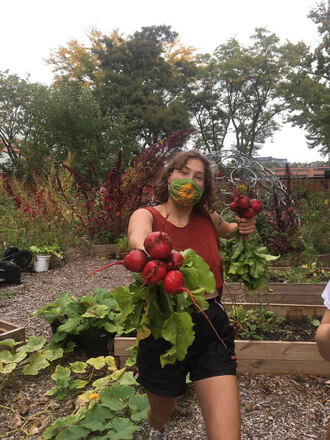 My name is Annalise Nordgren. I am finishing up my senior year at DePaul University with a B.A. in Environmental Studies. I transferred into DePaul in 2018, my sophomore year of college, after a year of feeling lost at my previous school. Off the bat, I became giddy with the varied opportunities the Environmental Science and Studies department offers to its students, from research opportunities to involvement in student orgs! I started working in the Chaudhary Ecology Lab run by Dr. Chaudhary my first year. With Dr. Chaudhary I worked on creating a spore extraction protocol to determine mycorrhizal spore viability. The following year Dr. Chaudhary received an NSF grant which allowed her to move to Berlin for a year to continue her research. During that time, I worked with Dr. Vogt in her Lab for Urban Forestry in the Anthropocene (LUFA). Although I am no longer working on a project with Dr. Chaudhary, I still try to attend lab meetings when I am available, as the lab community she has developed is such a supportive one! My research with Dr. Vogt allowed me to develop an interest in urban forestry and arboriculture. I am currently working on a project studying the tree damage caused by the Derecho storm in August 2020, which was responsible for the loss of over 7,000 trees in the Chicago land area. I have been so fortunate to find wonderful mentors in Dr. Vogt and Dr. Chaudhary, both very inspirational researchers in their fields. At the beginning of my first year here at DePaul I became involved in the DePaul Urban Garden (DUG), which, at that point, was called Urban Farming Organization (UFO). As a fresh new volunteer, I grew to love the space and the community of students and faculty that gathers there. I have been lucky enough to serve as a board member during the garden transition, a project which has been ongoing over the past two years. DUG received a grant from the Vincentian Endowment Fund which allowed us to invest in a new garden space. See the photo gallery below with pictures! We purchased raised bed material to construct 30 new raised beds. In creating this new space, we wanted to incorporate not only our commitment to gardening but also to give back to the community. We wanted to include a central meeting space and did so with materials mainly sourced from recycled bicycle rims. In addition to the physical changes in the space, we have redefined the goals of the organization. DUG has made a commitment to grow produce primarily intended for donation to those living with food insecurity. DUG greatly appreciates the healing properties of spending time outside and in nature. We have made it our goal to open up the space to DePaul organizations and volunteers for events, activities, and healing time. For more information about DUG involvement please reach out to DUG at [email protected].
0 Comments
DePaul University has received the 2020 Tree Campus USA certification from Arbor Day Foundation, making it the third year to be recognized for its on-campus tree efforts! With the pandemic restricting in-person events, the DePaul Trees student group took the lead in offering online resources around seasonal tree identification, stewardship and advocacy, and virtual urban forestry events, including observance of Arbor Day in April. Recognition as a Tree Campus offers DePaul students a connection to a broader network of resources that engage them with urban forestry locally and beyond. Caring for the urban forest is also caring for people as it enhances sustainability and livability of our cities, and DePaul is proud to be a part of that work in Chicago. By celebrating these efforts on campus, we are able to promote practices and skill sets to take not only into future careers but into our personal lives as we interact with trees wherever we may be.
To be a part of growing this work in 2021, join the DePaul Trees student group on DeHUB for email updates, check out our social media (Facebook, Instagram & Twitter), or send an email to [email protected]. You can also explore the trees on the Lincoln Park campus from home on our interactive tree map. See also the LUFA Trees@DePaul page. The above post was written by DePaul Trees president, Alli Preble. Alli is currently finishing her thesis using soundscape ecology to evaluate urban park management for her MS Environmental Science degree at DePaul. Alli is also a former LUFA research assistant: in 2017, she conducted field work inventorying street trees in Dolton, IL. New LUFA member Elene Drosos provides an update on the newest LUFA project, evaluating whether virtual street imagery can be use to assess storm damage from the August 2020 derecho storm. Elene writes: This winter intersession, I was recruited by Annalise, Camila, and Dr. Vogt to become a research assistant in the Virtual Tree Inventory Project. For this part of the "virtual" project, however, we were actually outside in the middle of winter! My duties were to mainly take the pictures of storm damage and of species characteristics on each of the trees we surveyed. I also measured the DBH, plot area, and height of the trees, working alongside Annalise and Camila. Most of the time though, Annalise would be in charge of the clipboard for our written data, Camila would measure plot area and height, and I would be responsible for the photos that we are currently using for analyzing storm damage and identifying uncertain tree species from each surveyed transect. I used my cell phone to take pictures and was always armed with a battery pack so that we could soak up all of the little daylight in December and collect as much tree data as possible. Now that we have all of this data, we hope to analyze it virtually with the help of street view imagery. Stay tuned for future updates as we enter the next phase of this project where we'll be using virtual imagery to verify the location and species of trees before the storm, so that we can compare to field data and determine what tree characteristics were likely to lead to tree failure.
LUFA student Camila Cortez was profiled this week in DePaul's Newline publication! Camila is working on the TreeKeepers project as her senior B.S. thesis for the B.S. Environmental Science degree and also a McNair Scholar. Click the screen shot below to see the full article.
|
AuthorJess Vogt, Associate Professor, Env. Science & Studies, DePaul University Archives
July 2022
Categories
All
|
1110 West Belden Avenue Chicago Illinois 60614
|
Site last updated: August 9, 2018.
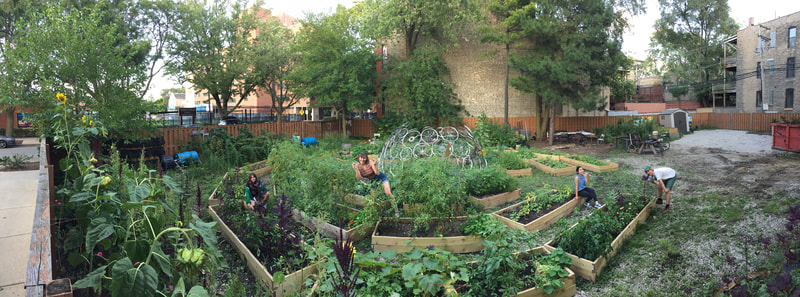
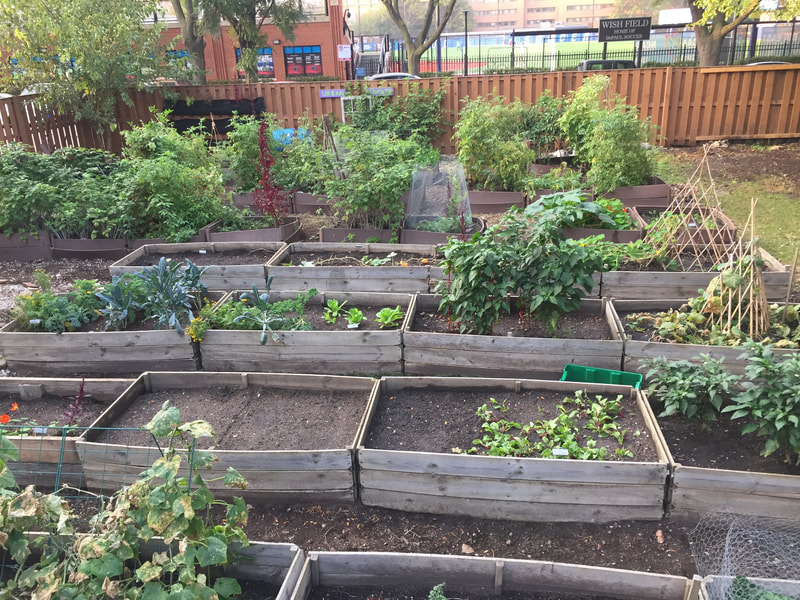
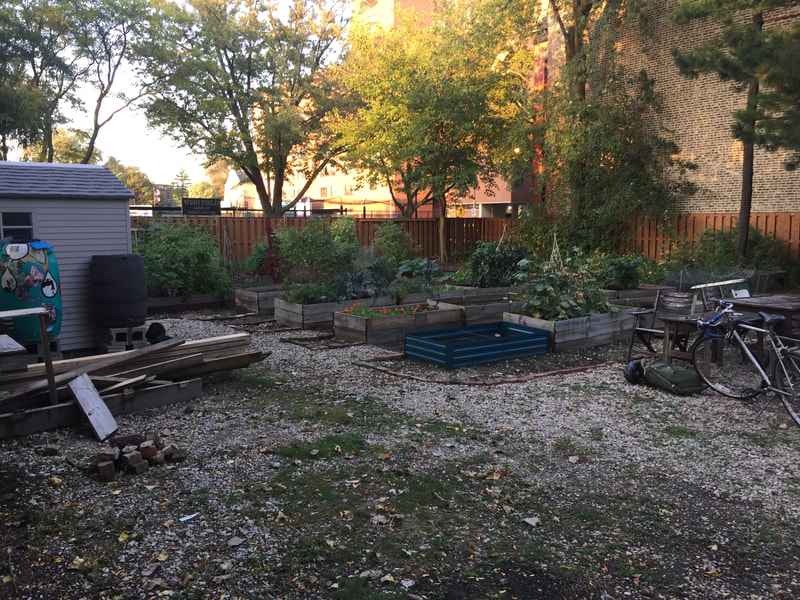
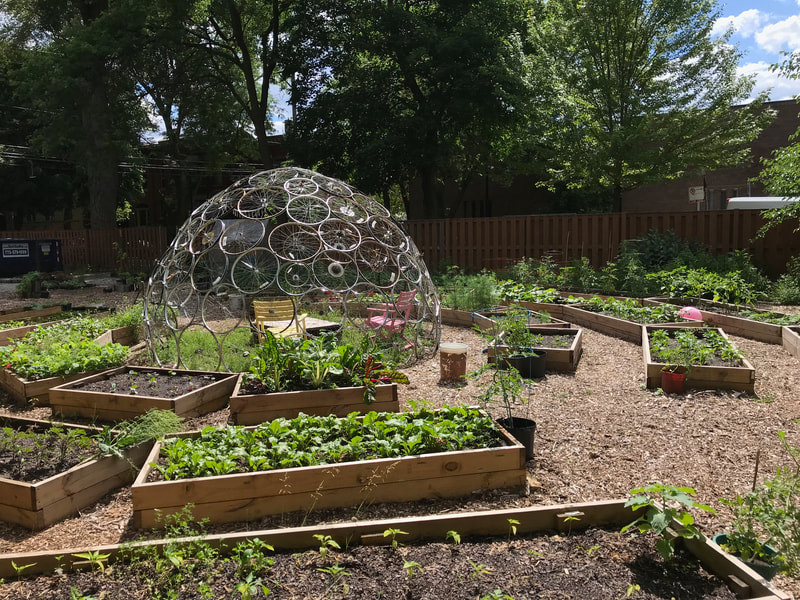
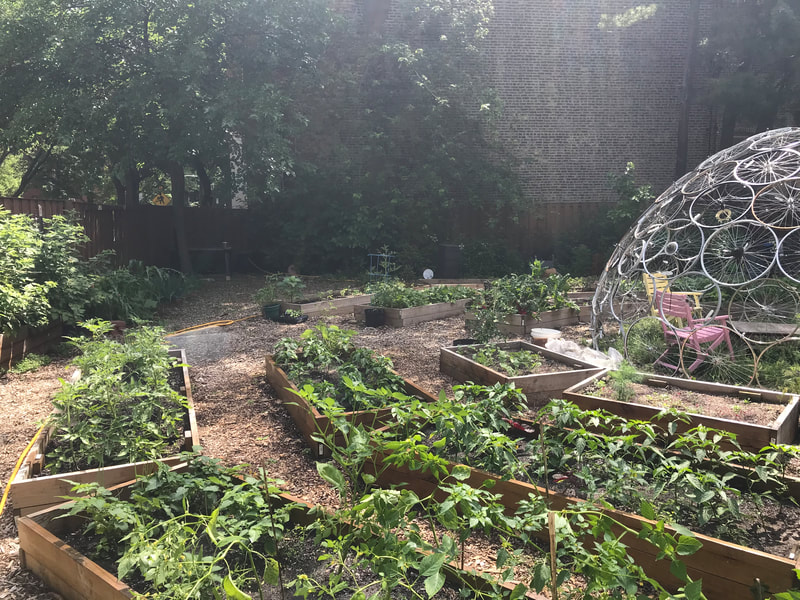
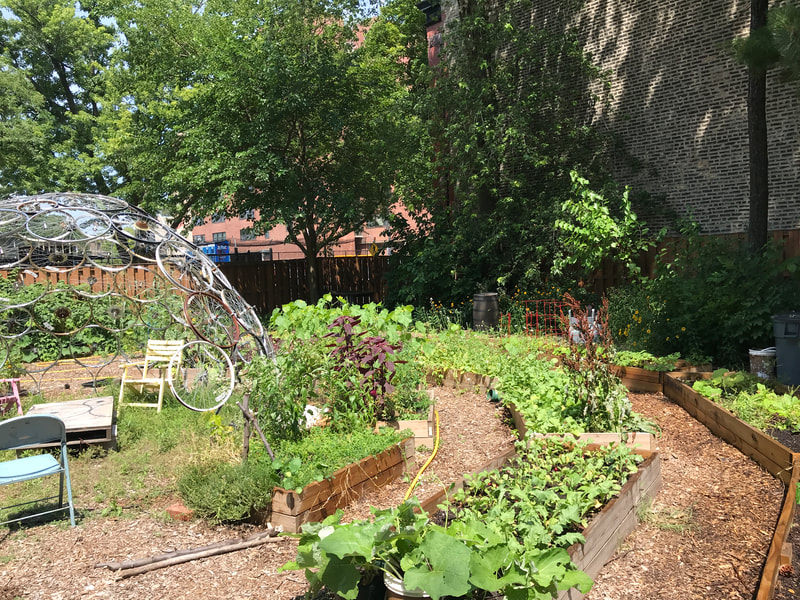
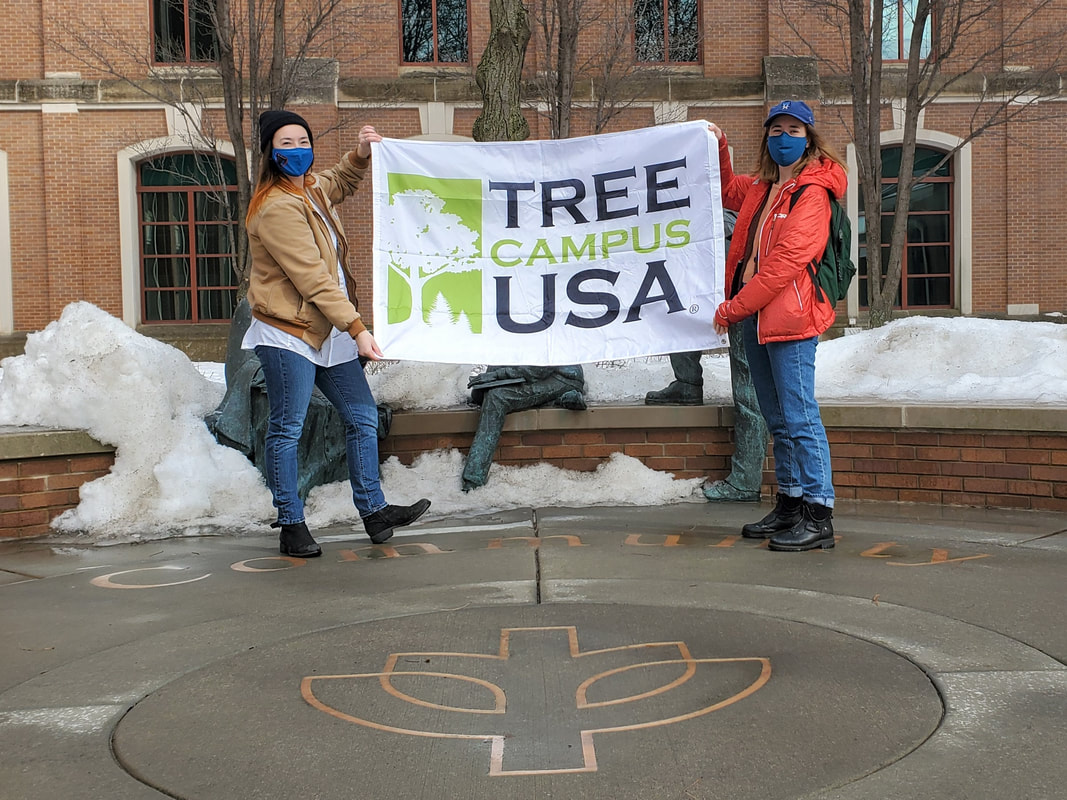

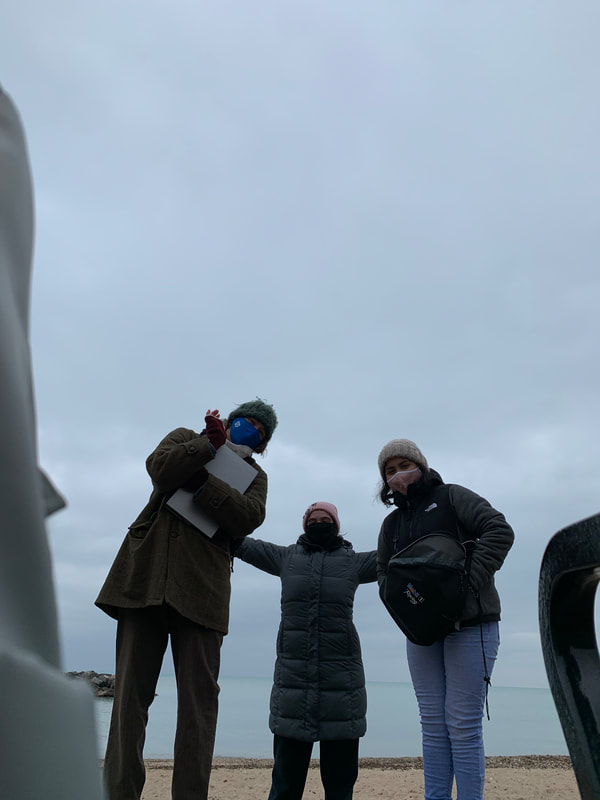
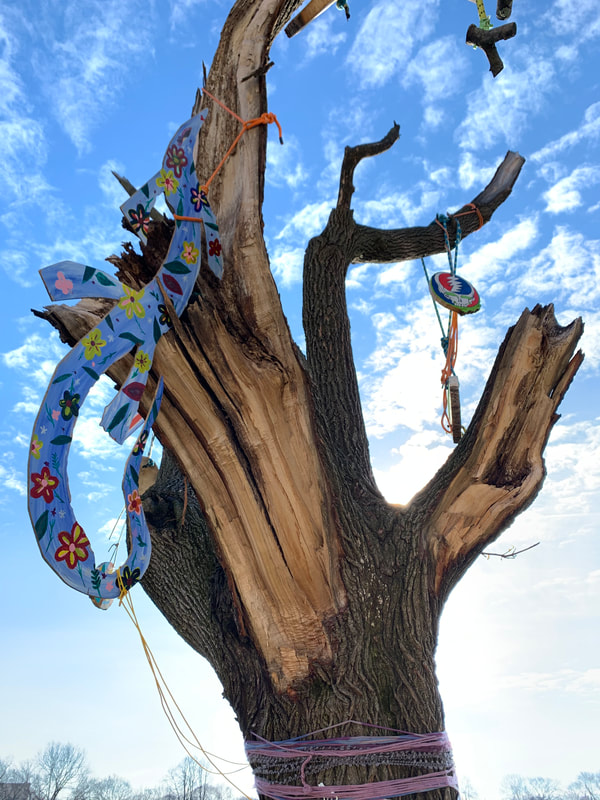
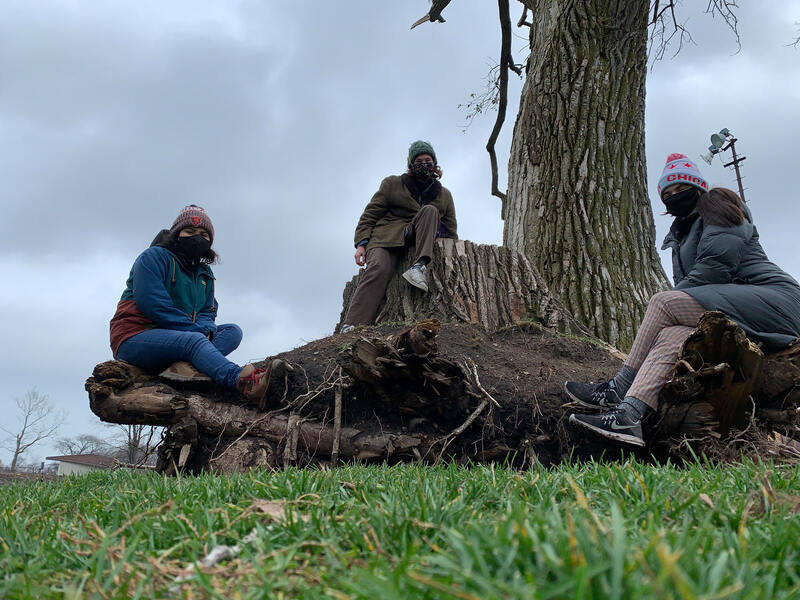
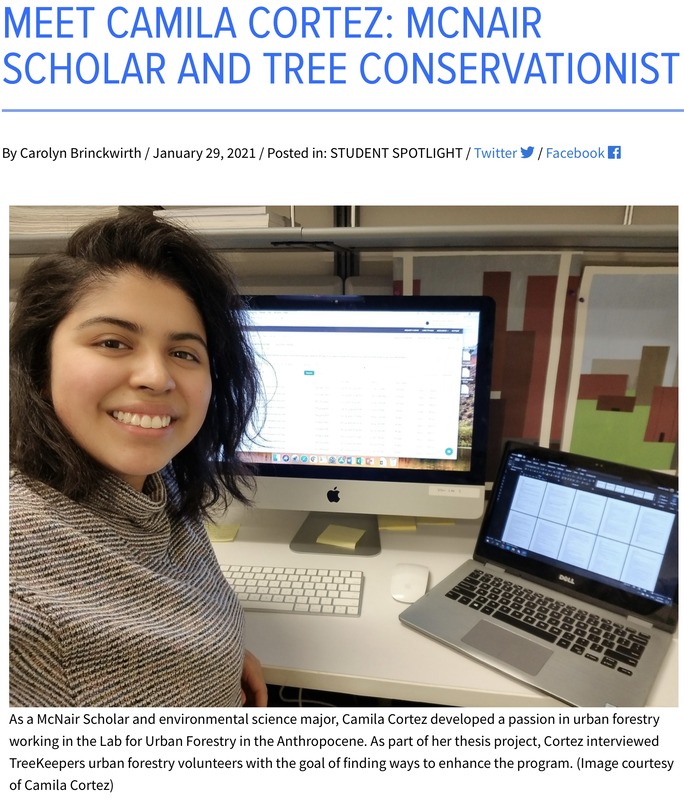
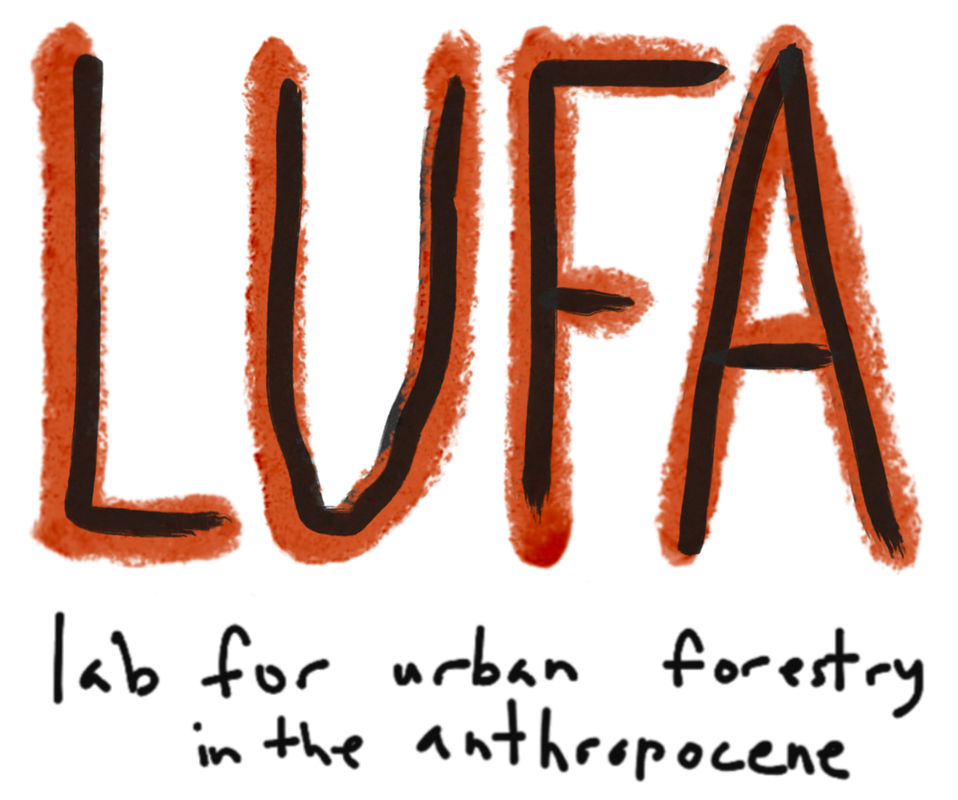

 RSS Feed
RSS Feed

